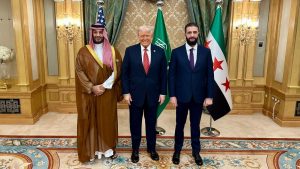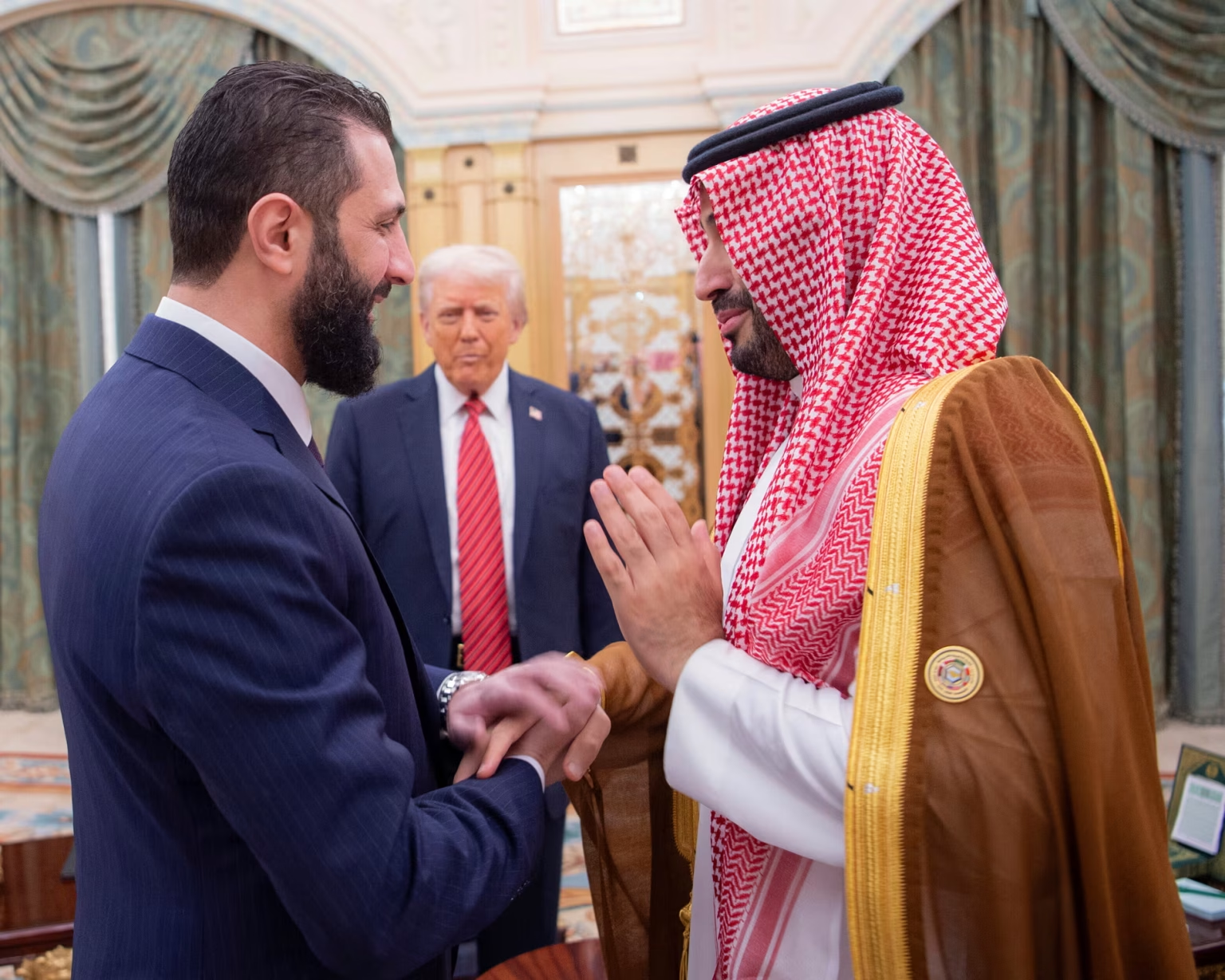In a landmark shift in US foreign policy, President Donald Trump met with Ahmed al-Sharaa, the de-facto leader of Syria, on Wednesday — marking the first meeting between the heads of the two countries in 25 years.
The encounter took place in Riyadh, a day after Trump announced that the United States would lift longstanding sanctions on Syria, signalling an end to decades of diplomatic isolation and economic embargoes that had shaped US-Syria relations since the 1990s.
Trump, who was on a high-profile Middle East tour with stops in Saudi Arabia, Qatar, and the United Arab Emirates, described al-Sharaa as “great” and “a tough guy” after a 30-minute closed-door meeting.
The meeting was arranged at the invitation of Saudi Crown Prince Mohammed bin Salman, with Turkish President Recep Tayyip Erdogan joining via phone.
Lift crippling sanctions
The timing of the diplomatic engagement is notable, coming after al-Sharaa’s rebel coalition ousted long-time strongman Bashar al-Assad. Once a senior figure in Al Qaeda’s Syrian affiliate, al-Sharaa has sought to rebrand himself as a reformist leader in a post-Assad Syria, attempting to stabilise the country and lift crippling international sanctions, read an NYT report.
In a White House summary of the meeting, Trump told al-Sharaa he had “a tremendous opportunity to do something historic” and urged him to normalise ties with Israel and expel all “foreign terrorists” from Syrian soil, reports Reuters.
The US president’s remarks reflect a broader push to integrate Syria back into the regional fold and realign it geopolitically following years of civil war.

‘Good for Israel’
Trump’s decision to lift sanctions on Syria drew a standing ovation in Riyadh, with several Arab dignitaries reportedly welcoming the move as a path to stability and reconstruction in the war-torn nation. While the US-Syria rapprochement dominated headlines, the trip has not been without controversy.
As Trump landed in Doha, Israeli airstrikes in northern Gaza reportedly killed dozens of Palestinians overnight, with health officials warning of an escalating humanitarian crisis, reports Aljazeera.
Despite this, Trump insisted that his deepening ties with Arab states were “good for Israel,” telling reporters en route to Qatar the day before that these relationships could lay groundwork for broader regional peace.
The meeting with al-Sharaa is expected to have wide-reaching consequences, not just for Syria’s re-entry into international diplomacy, but also for the broader geopolitical order in the Middle East as the region recalibrates in the wake of incessant struggles.


